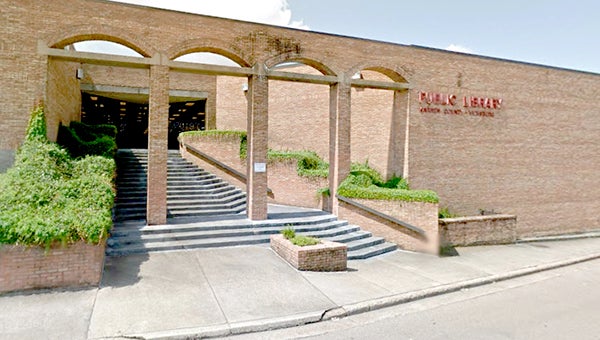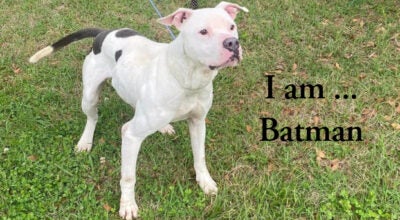Library Column: New science non-fiction
Published 4:00 am Monday, July 5, 2021
This column was submitted by Evangeline Cessna, Local History Librarian at the Warren County – Vicksburg Public Library.
This week’s column features science and health titles in our New Adult Non-Fiction section.
Speech-language pathologist Christina Hunger delivers an incredible story in “How Stella Learned to Talk: The Groundbreaking Story of the World’s First Talking Dog.” This remarkable story is how Christina taught her dog, Stell, to communicate using simple paw-sized buttons; each associated with different words. When she first brought Stella home, Christina couldn’t help but notice the connections between her career and her new pet. She began wondering: “If dogs can understand words we say to them, shouldn’t they be able to say words to us?” Are dogs capable of using Augmentative and Alternative Communication devices to help them communicate with humans? Not only does this book chronicle Chistina and Stella’s journey, but it also reveals the techniques Christina used to teach Stella. This system is broken down into simple stages and actionable steps that any dog owner can use to begin communicating with their pets.
Peter J. Hotez, MD, PhD brings us “Preventing the Next Pandemic: Vaccine Diplomacy in a Time of Anti-Science.” In a post-COVID-19 world, how do we prevent future illnesses by expanding scientific and vaccine diplomacy and cooperation? Modern diseases and viruses have been spurred anew by war, poverty, urbanization, climate change and a few anti-science/anti-vaccine proponents. There has been a sharp increase in vaccine-preventable and neglected diseases on the Arabian Peninsula, Venezuela, in parts of Africa and even in some places in the United States. Dr. Hotez believes that we can prevent the next pandemic by encouraging international vaccine diplomacy. This book extensively covers Dr. Hotez’s work developing vaccines for diseases like COVID and his work as the Obama-era US Science Envoy for the Middle East and Northern Africa. He has witnessed tropical infectious diseases and has established vaccine partnerships that may combat them up close. Finally, he discusses the decline of global cooperation and cohesion that has directly led to the decline in programs that are meant to benefit the most vulnerable of the planet’s populations.
One of the foremost researchers in human metabolism, Herman Pontzer, brings us his latest with “Burn: New Research Blows the Lid Off How We Really Burn Calories, Lose Weight and Stay Healthy.” We burn 2,000 calories a day and if we exercise and cut carbs, we’ll lose more weight, right? Wrong. Pontzer reveals how human metabolism really works so that we can finally manage our weight and improve our health. Pontzer conducted groundbreaking research with hunter-gatherer tribes and found that exercise doesn’t increase our metabolism. Instead, we burn calories withing a very narrow range: nearly 3,000 calories per day, no matter our activity level. The good news is that we can lose weight, but we need to cut calories. Pontzer goes on to describe how all diets succeed or fail: for shedding pounds, a calorie is a calorie. We need to exercise to keep our body systems and signals at optimal functioning levels — even if it won’t make us thinner. Hunter-gatherer tribes move about five hours per day and remain healthy into old age, but elite athletes can push the body too far — burning calories faster than their bodies can take them in. This book is a revealing and irreverent look that may just change how you eat, move and live.
“What Happened to You?: Conversations on Trauma, Resilience and Healing” is by Bruce Duncan Perry, MD, PhD, and Oprah Winfrey. This book seeks to provide powerful scientific and emotional insights into the behavioral patterns so many struggle to understand. Our earliest experiences can shape our lives far down the road. Have you ever wondered, “Why did I do that?” or “Why can’t I just control my behavior?” Others may wonder, “What’s wrong with you?” and “What happened to you?” Oprah shares stories from her own past, gaining an understanding of the vulnerability that comes from facing trauma and adversity at a young age. This subtle shift in our approach to trauma allows us to understand our pasts and to open the door to resilience and healing.
“Mr. Humble and Dr. Butcher: A Monkey’s Head, the Pope’s Neuroscientist and the Quest to Transplant the Soul” is a delightfully macabre tale by Brandy Schillace. The early days of the Cold War saw a desperate scientific rivalry that birthed a different kind of space race — one that sought to master the inner space of the human body. While surgeons on both sides of the Iron Curtain raced to master the transplantation of organs like the kidney and heart, a young American neurosurgeon had an even more ambitious goal: Why not transplant the brain? Dr. Robert White was a friend to two popes, the founder of the Vatican’s Commission on Bioethics, he developed lifesaving neurosurgical techniques still used in hospitals today and he was nominated for a Nobel Prize. Dr. White was secretly waging a battle against the limits of science and against mortality itself — trying to perfect a surgery that would allow the soul to live on after the body had died. This decades-long quest included matters of science, politics and faith and reveals the complex — and muddy — ethics of experimentation and the remarkable innovations that, today, save patients from certain death.





